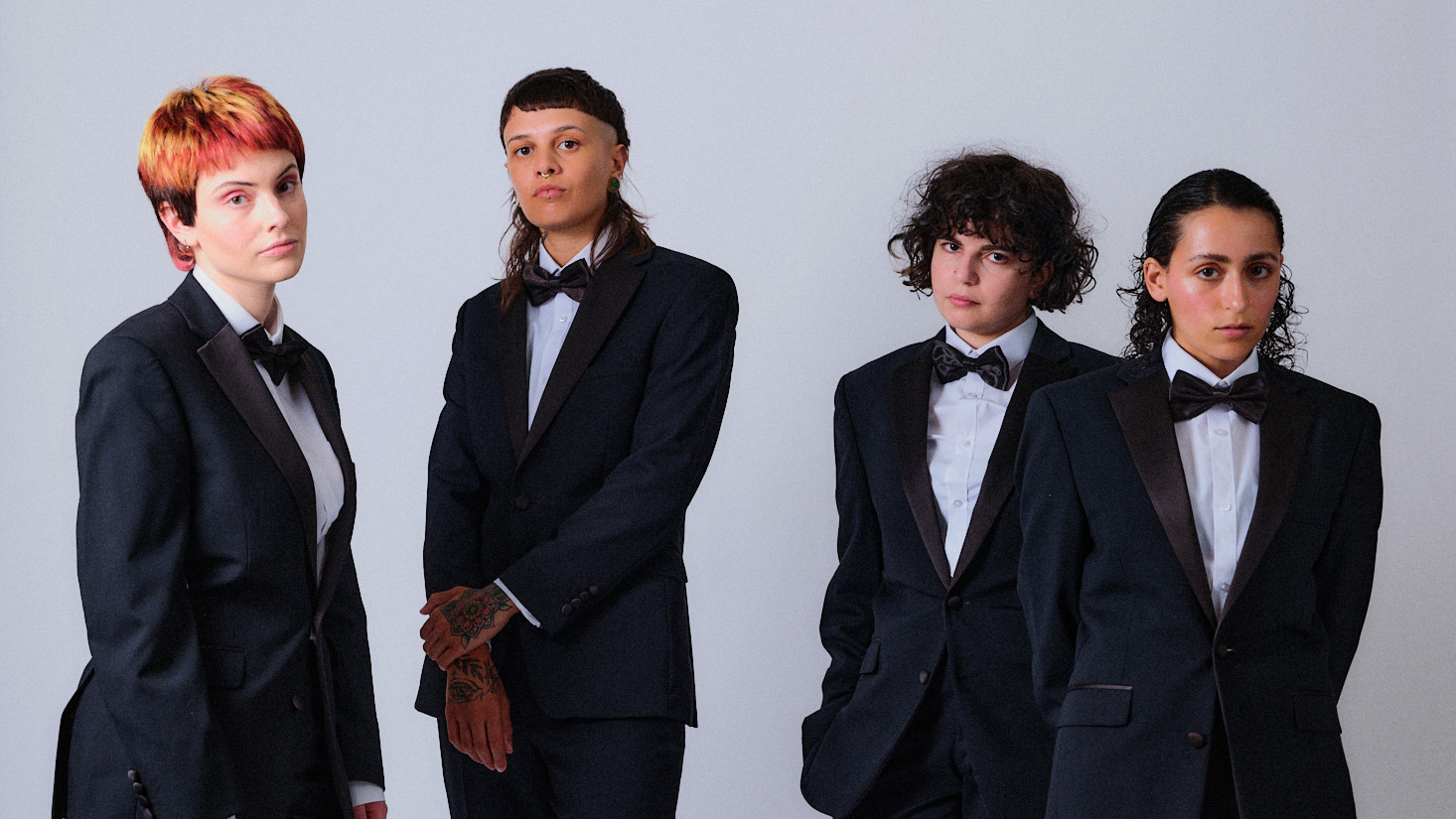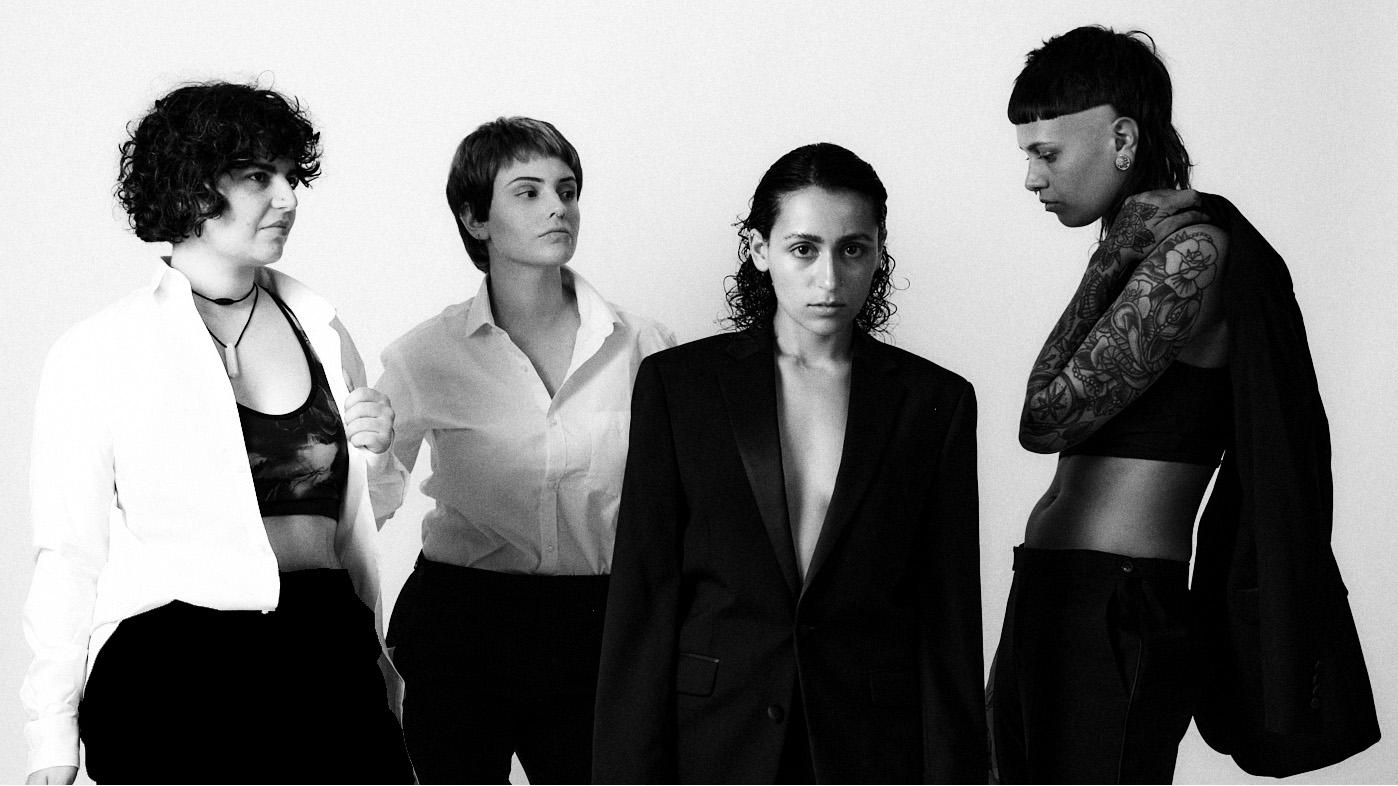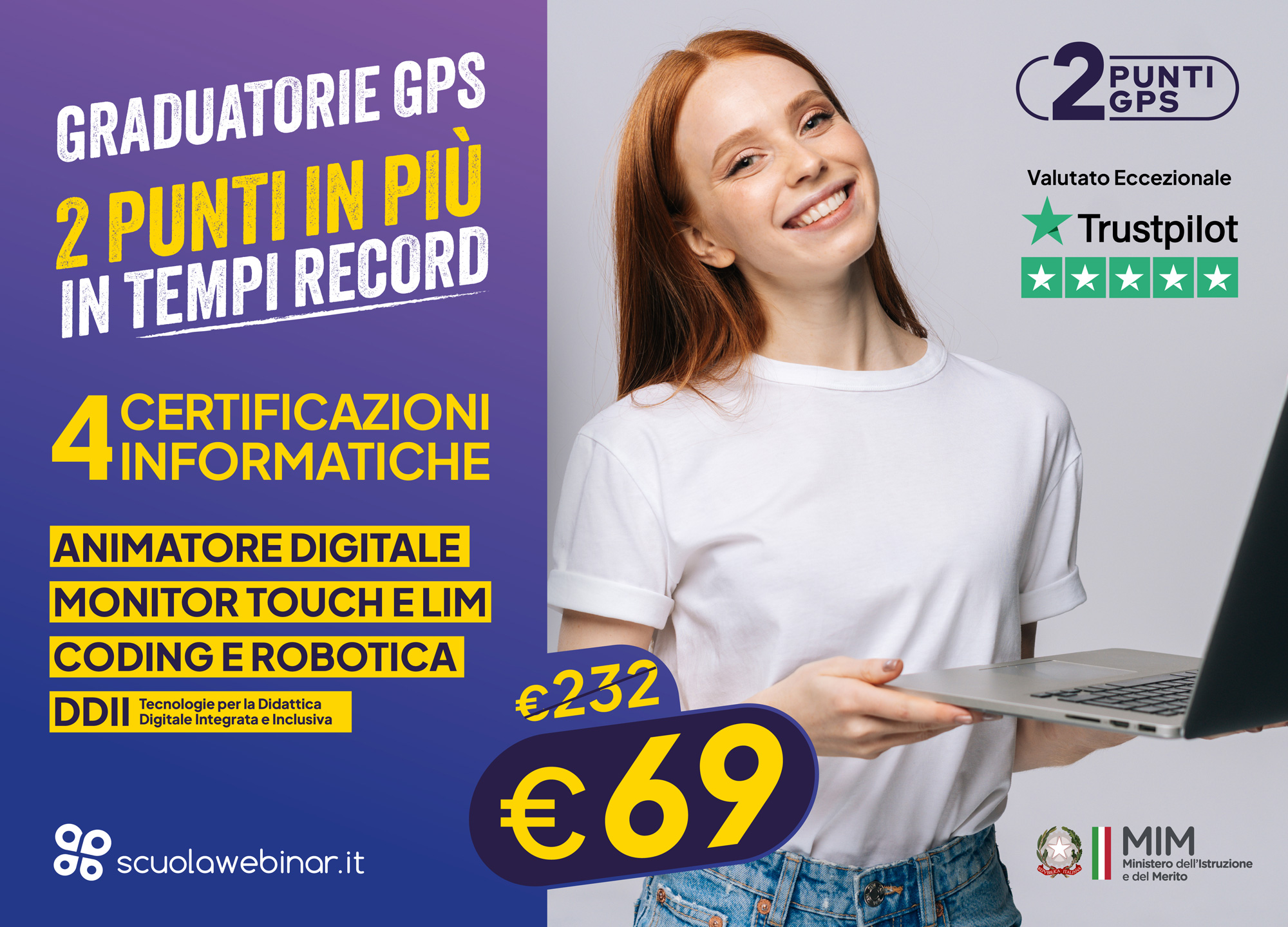La chitarrista Janelle Borg ci racconta il mondo del quartetto di stanza a Brighton alla vigilia della loro data italiana al Fans Out Festival.
[Foto in copertina © Corey Eyres]
Su Rockambula avevamo già parlato delle ĠENN e del loro album di esordio unum (uscito nell’ottobre del 2023 per Liminal Collective) in questa recensione a firma di Francesca Prevettoni.
A pochi giorni dalla loro data italiana al Fans Out Festival di Vaglio Serra (AT), in programma il prossimo 14 giugno, abbiamo avuto occasione di scambiare qualche parola con la chitarrista Janelle Borg, con la quale si è parlato di radici culturali, degli ostacoli da affrontare per una band emergente, del ruolo dell’artista dal punto di vista politico-sociale e di alcuni loro brani molto particolari.
Le ĠENN sono Janelle Borg – chitarra (she/her), Sofia Rosa Cooper – batteria (she/they), Leona Farrugia – voce (she/they), e Leanne Zammit – basso (she/her).
Di seguito il testo dell’intervista in italiano e in inglese.
Please scroll to read the interview in English.
[ITA]
Ciao Janelle! Allora, tre di voi hanno origini maltesi mentre Sofia invece è di origine giamaicana-portoghese. In che modo queste origini favoriscono uno scambio culturale utile al vostro processo creativo?
Il nostro retaggio spesso definisce chi siamo come persone, e questo ovviamente permea la nostra musica, specialmente quando scriviamo canzoni. Parliamo molto dei nostri ascolti, di ricordi specifici, di persone nella nostra vita che ci hanno ispirato e questo emerge nella nostra musica.
Con la musica che stiamo scrivendo adesso stiamo prestando particolare attenzione nel portare avanti il nostro bagaglio; penso che in passato a volte eravamo un po’ titubanti nell’abbracciare certi elementi.
In che modo vivere a Brighton ha favorito la crescita artistica?
Sofia, la batterista, è cresciuta a Crawley, che è molto vicina a Brighton. Era sempre qui per concerti, jam session e scuole di musica.
Per noi tre di Malta venire a Brighton è stato un po’ come una boccata d’aria fresca in un certo senso, soprattutto perché è una città molto progressista e artistica che incoraggia le persone a essere chiunque vogliano essere.
Scegliere una città sul mare per vivere è stata una coincidenza?
Assolutamente no! Il mare ci trasmette un senso di familiarità e questo è anche uno dei luoghi più soleggiati del Regno Unito, due cose per noi molto importanti. Abbiamo trovato anche Sofia, che abitava lì vicino, quindi spesso scherziamo dicendo che ci siamo trasferiti per lei (e in parte è vero).
Siamo in un mondo in cui i servizi di streaming digitale ci portano a consumare musica troppo velocemente e questo spesso porta alla svalutazione dell’arte. Come vi sentite ad essere una band emergente in questo contesto?
Credo sia una grande challenge in questo momento. Sebbene lo spazio digitale sia fondamentale per raggiungere persone che altrimenti non sentirebbero mai parlare della tua musica, in quanto democratizza la sfera dei media (in una certa misura), gli algoritmi possono farti sentire come se dovessi costantemente “nutrire la bestia”.
Penso sia una fatica che ci troviamo a vivere, e personalmente ho parlato anche con molti artisti che si sentono allo stesso modo. Inoltre, c’è anche il divario tra l’1% degli artisti più ricchi, o artisti con un certo sostegno, e gli artisti indipendenti ed emergenti che non hanno la capacità di spendere molte migliaia in contenuti e pubblicità. Decisamente una faticaccia!
E in quello stesso contesto, quanto è importante essere musicalmente flessibili nel genere e nella sperimentazione per non essere etichettati come “troppo simili agli altri”?
Bene, questo è un dilemma e una discussione comune tra noi, poiché a volte riteniamo che essere simili agli altri funzioni meglio per l’algoritmo. Spesso hai la sensazione di essere in qualche modo “penalizzato” per aver sperimentato e spinto oltre i limiti. Da parte nostra, soprattutto nel momento in cui stiamo scrivendo le canzoni, abbiamo semplicemente deciso di essere fedeli a noi stesse e a ciò che vogliamo dalla nostra musica. Inseguire le tendenze o cercare di diventare virali è decisamente estenuante, quindi il meglio che possiamo fare è creare musica autentica!
Puoi raccontarmi come è nata l’idea del cortometraggio di The Sister Of e i vari riferimenti che avete utilizzato?
In sostanza, il regista Kyryl Volovych ci aveva contattato sui social media e Leo (la nostra cantante), che è davvero appassionata di cinema, gli aveva parlato della possibilità di realizzare un cortometraggio. Dopo aver discusso alcuni temi e riferimenti con Leo, Kyryl e il suo team in Ucraina hanno gestito tutto.
Il risultato è una miscela di realismo, misterioso surrealismo ed elementi di fantascienza. Secondo Kyryl, The Sister Of è in qualche modo una fusione di tutte le emozioni contrastanti, i pensieri e le mutevoli prospettive sulla vita che si verificano nella mia mente. E nelle menti di milioni di persone.
C’è anche l’esperienza vissuta da lui e dal suo team in un paese devastato dalla guerra, che, sebbene presentata in modo sfumato, è molto presente nel cortometraggio.
Come vi è venuto in mente il termine “Rohmeresse” e cosa ha ispirato quella canzone?
Beh, voler dormire tutto il giorno e talvolta sentirsi come se volessi letteralmente restare a casa e non fare nulla. L’argomento del quotidiano emerge spesso nei testi di Leo, e lei è davvero brava a osservare le piccole cose e a trasformarle in poesia. Siamo molto fortunati ad averla! Musicalmente, questa canzone è il nostro biglietto da visita, poiché unisce molte delle nostre ispirazioni musicali.
Ci sono elementi post-punk, prog, jazz, metal, folk mediterraneo… lo hai nominato ed è probabilmente lì!
Un paio di settimane fa avete suonato a “Music for a Ceasefire”, uno degli eventi musicali in collaborazione con Jeremy Corbyn e Peace & Justice Project per raccogliere fondi destinati ad aiuti medici per il popolo palestinese. Qual è il ruolo dell’artista in questo periodo storico nel prendere una posizione chiara ed esporla?
Viviamo tempi molto strani, in un momento in cui il clima politico è estremamente divisivo… sia il Regno Unito che Malta stanno attraversando un periodo di agitazione.
Abbiamo deciso di partecipare all’evento di raccolta fondi poiché a volte ci si sente impotenti a vedere tutta la sofferenza, il dolore e l’ingiustizia che sta accadendo nel mondo. Gli artisti sono stati storicamente importanti nel denunciare le ingiustizie e nel protestare per la pace, e questo sta accadendo di nuovo oggi.
Con i social media ci sono molti modi per accedere alle esperienze vissute da coloro che attualmente vivono in paesi e aree dilaniati dalla guerra, quindi pensiamo che i riflettori dovrebbero davvero essere puntati sull’amplificazione delle LORO storie più di qualsiasi altra cosa.
A giugno suonerete al Fans Out Festival, in Piemonte. Sarà la prima volta nel nostro paese? Che sentimenti vi ispirano l’Italia e le colline piemontesi?
Abbiamo suonato in Italia l’ultima volta nel 2019 ma sarà la prima volta che suoneremo in Piemonte. Non vediamo l’ora di trovare il cibo, il sole (speriamo!) e tante buone vibes!
Grazie Janelle!

LINK
Sito web
Bandcamp
Instagram
Facebook
[ENG]
Hi Janelle! Three of you have Maltese origins, while Sofia has Jamaican-Portuguese origins. How do these origins foster a cultural exchange useful to your creative process?
Our heritage often defines who we are as people, and this obviously permeates through our music, especially when we’re songwriting. We have a lot of discussions about the music that we’re listening to, specific memories, people in our lives who inspired us, etc, and this comes through in our music. With the music we’re writing now, we’re paying special attention to really bringing more of our heritage forward, as I think that in the past we were sometimes a bit hesitant to embrace certain elements.
How did being based in Brighton encourage artistic growth?
Sofia (drummer) grew up in Crawley, which is super close to Brighton. She was always here for gigs, jamming sessions and music school. For us three from Malta, coming to Brighton was a bit like a breath of fresh air in some ways, especially as it’s a very progressive and artistic city that encourages people to be whoever they want to be.
Is it a coincidence that you chose a seaside city to live in?
Definitely not! The sea brings a sense of familiarity to us, and it’s also one of the sunniest places in the UK, two things that are very important for us. We also found Sofia, who happened to live nearby, so we often joke around, saying that we moved for her (partly true).
We live in a world where digital streaming services lead us to consume music too quickly and this often leads to the devaluation of art. How do you feel about being an emerging band in this context?
I think it’s a big challenge at the moment. While the digital space is crucial to reach people who would otherwise not have heard of your music, as it democratises the media sphere (to an extent), the algorithms can make you feel like you constantly have to “feed the beast.”
I think it’s a fatigue that we find ourselves experiencing, and personally I’ve also talked to many artists who are feeling the same way. Additionally, there’s also the gap between the top 1% of artists, or artists with a certain backing, and independent and emerging artists who don’t have the capacity to spend thousands on content and ads. It’s definitely a grind!
And in that same context, how important is it to be musically flexible in genre and experimentation in order not to be labeled as “too similar to others”?
Well, this is a conundrum and a common discussion between us, as we sometimes feel that being similar to others works better for the algorithm. It often feels like you get somehow “penalised” for experimenting and pushing the boundaries. From our end, especially at the moment while we’re songwriting, we just agreed to be true to ourselves and what we want out of our music. Chasing trends or trying to go viral is downright exhausting, so the best we can do is create authentic music!
Can you tell me how the idea for The Sister Of short film was born and the various references you used?
Basically, director Kyryl Volovych had contacted us on social media, and Leo (vocalist), who is really into cinema, had talked to him about potentially doing a short film. After discussing certain themes and references with Leo, Kyryl and his team in Ukraine handled everything.
The result is a blend of realism and mysterious surrealism, and elements of sci-fi. According to Kyryl: The Sister Of is somewhat a merger of all the contrasting emotions, thoughts and changing outlooks on life that so happen to occur in my mind. And in the minds of millions.”
There’s also the lived experience of him and his team living in a war-torn country, which, although presented in a nuanced way, is very much present in the film.
How did you come up with the term “Rohmeresse” and what inspired you in that song?
Well, wanting to sleep all day and sometimes feeling like you literally want to stay at home and do nothing. The topic of the mundane comes up a lot in Leo’s lyrics, and she’s really good at observing the small things and turning those observations into poetry. We’re very lucky to have her! Musically, this song is very much our calling card, since it blends a lot of our musical inspirations. There’s an element of post-punk, prog, jazz, metal, Mediterranean folk…you name it and it’s probably there!
A couople of weeks ago you played at “Music for a Ceasefire”, one of the musical events in collaboration with Jeremy Corbyn and Peace & Justice Project to raise funds for medical aid and the Palestinians. What is the role of the artist in this historical period in taking a clear position and exposing it?
We’re living in very strange times right now where the political climate is extremely divided…both the UK and Malta, where Leo, Lea and I come from, are going through political turmoil.
We decided to participate in the fundraising event for medical aid for Palestinians, as it can sometimes feel like you’re helpless when seeing all the suffering, pain and injustice that’s going on in the world. Artists have historically been important in flagging injustices and protesting for peace, and it’s happening again today.
With social media, there are many ways to access the lived experiences of those currently in war-torn countries and areas, so we do think the spotlight should really be on amplifying THEIR stories over anything else.
In June, you will play at the Fans Out festival in Piedmont. Will it be the first time in our country? What feelings do Italy and the Piedmontese hills inspire in you?
We last played in Italy in 2019 but it’s going to be our first time playing in Piedmont. I think we’re all looking forward to the food, (hopefully) the sun, and the general good vibes!
Thank you Janelle!

SEGUICI
Web • Facebook • Instagram • Twitter • Spotify • Telegram
Alt Rock Art Rock brighton Fans Out Festival ĠENN interview Intervista Malta Post-Punk
Last modified: 17 Luglio 2024


















